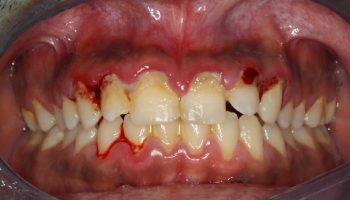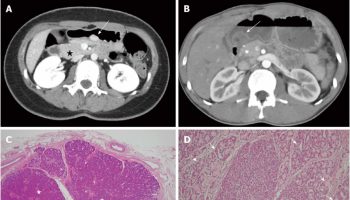Contents
- What is fifth disease
- Fifth disease incubation period
- Fifth disease and pregnancy
- Fifth disease causes
- Fifth disease prevention
- Fifth disease symptoms
- Fifth disease diagnosis
- Fifth disease treatment
What is fifth disease
Fifth disease also known as ‘slapped cheek disease’ or erythema infectiosum, is a fairly mild viral illness caused by parvovirus B19. Fifth disease gets its name from its most obvious symptom – a red rash that makes children’s cheeks look like they’ve been slapped. The parvovirus B19 only infects humans; it’s not the same parvovirus that dogs and cats can get. Fifth disease mostly affects children ages 4 to 14. The infection often starts with mild fever, headache, sore throat, and flu-like symptoms that should clear up on its own within 3 weeks. Then you get a red rash on your face. It looks like a “slapped cheek.” Some people may get a second lacy or bumpy rash a few days later on their chest, back, buttocks, or arms and legs. The rash may be itchy, especially on the soles of the feet. It can vary in intensity and usually goes away in seven to 10 days, but it can come and go for several weeks. As it starts to go away, it may look lacy.
Fifth disease is rarer in adults but can be more serious. Adults who get it might also have joint pain and swelling.
Fifth disease spreads easily from one person to another, through saliva, sputum and mucus. You can get it when an infected person coughs or sneezes. Frequently washing your hands might help prevent getting the virus. Outbreaks of parvovirus B19 infections occur from time to time in elementary and middle schools during the late winter and early spring months.
Most people become immune to the parvovirus B19 after having it once.
Fifth disease can also be passed from a pregnant woman to her fetus. The virus can cause serious illness in a fetus or in any child who has a certain type of anemia (low red blood cell count) such as sickle cell anemia. Parvovirus infections can make sickle cell anemia and other hemolytic anemias, much worse. This complication may lead to an aplastic crisis in which blood counts drop to dangerously low levels. This can happen to the fetus when a pregnant woman has a parvovirus infection. The fetus can develop heart failure related to the low blood counts. This condition is called hydrops fetalis and can cause fetal death. Transfusions are often needed in the fetus or child with aplastic crisis.
Fifth disease is usually mild and goes away on its own. However, it can be serious if you:
- Are pregnant
- Are anemic
- Have cancer or a weak immune system
Fifth disease rash and joint symptoms may develop several weeks after infection. A pregnant woman who develops symptoms of fifth disease may or may not develop a facial or body rash. Some adults (about 20 to 30%) infected with parvovirus B19 will not have symptoms.
Key facts to remember
- Parvovirus B19—which causes fifth disease—spreads through respiratory secretions, such as saliva, sputum, or nasal mucus, when an infected person coughs or sneezes.
- Parvovirus B19 can also spread through blood or blood products. A pregnant woman who is infected with parvovirus B19 can pass the virus to her baby.
- Fifth disease begins with a fever, headache and runny nose.
- A bright red rash, like the mark left by a slap, appears on the cheeks.
- Over the next two to four days a lacy rash spreads to the trunk and limbs.
- You are most contagious when it seems like you have “just a fever and/or cold” and before you get the rash or joint pain and swelling.
- You can only it spread to other people before the rash appears. After you get the rash you are not likely to be contagious, so then it is usually safe for you or your child to go back to work or school.
- People with fifth disease who have weakened immune systems may be contagious for a longer amount of time.
- Once you recover from fifth disease, you develop immunity that generally protects you from parvovirus B19 infection in the future.
- Children with blood disorders such as spherocytosis or sickle cell disease may become more anemic. They should seek medical care.
- Pregnant women or women planning to become pregnant should see their doctor or midwife as soon as possible if they come into contact with the infection or develop a rash. Fifth disease can result in serious complications such as damage to the fetus, miscarriages, or stillbirths.
What to do
- Make sure your child rests and drinks plenty of fluids to avoid dehydration – babies should continue their normal feeds
- Take paracetamol (acetaminophen) or ibuprofen to relieve the discomfort, headaches, joint pain and fever.
- Use moisturizer on itchy skin. Speak to a pharmacist if you have itchy skin – they can recommend the best antihistamine for children
- The parvovirus B19 can affect an unborn child. If you’re pregnant and you’ve become infected, or you’ve come into contact with someone with the virus, you should see your doctor immediately for blood tests and monitoring of your pregnancy. Fifth disease can result in serious complications such as damage to the fetus, miscarriages, or stillbirths.
- Most children infected with parvovirus B19 have only a mild illness that goes away on its own. However, children with blood disorders such as sickle cell anemia, thalassaemia there’s a risk of severe anemia or a weakened immune system can become seriously ill if they develop fifth disease and should be seen by a doctor immediately.
- You have a weakened immune system – for example, because of chemotherapy, leukemia, cancer, organ transplants, diabetes or HIV infection.
Go to the emergency department if you have:
- very pale skin
- shortness of breath
- extreme tiredness
- fainting
These can be signs of severe anemia and you might need blood transfusion.
Figure 1. Fifth disease baby
Figure 2. Fifth disease toddler
Figure 3. Fifth disease rash
Fifth disease possible complications
Fifth disease does not often cause complications in most people.
Although usually a mild childhood condition, parvovirus B19 infection can result in complications. These include:
- Polyarthropathy in infected adults (painful, swollen joints)
- Aplastic crisis or potentially dangerous low blood cell count in patients with haemolytic blood disorders such as autoimmune haemolytic anaemia and sickle cell disease
- Spontaneous abortion, intrauterine death (9%) or hydrops fetalis in 3% of the offspring of infected pregnant women. This can occur if erythema infectiosum occurs in the first half of pregnancy. Parvovirus B19 does not cause congenital malformations. As the risk of an adverse outcome is low, the infection is not routinely screened for in pregnancy
- Chronic parvovirus infection in immunodeficient patients, such as organ transplant recipients, causing erythropoietin-resistant anaemia, proteinuria, and glomerulosclerosis in a renal allograft
- Rarely, encephalitis, hepatitis, non-occlusive bowel infarction, amegakaryocytic thrombocytopenia, myositis and heart disease
If you are pregnant and think you may have been exposed to someone with the virus, tell your provider. Usually there is no problem. Most pregnant women are immune to the virus. Your provider can test you to see if you are immune.
Women who are not immune most often only have mild symptoms. However, the virus can cause anemia in an unborn baby and even cause miscarriage. This is uncommon and occurs only in a small percentage of women. It is more likely in the first half of pregnancy.
There is also a higher risk of complications in people with:
- A weak immune system, such as from cancer, leukemia, or HIV infection
- Certain blood problems such as sickle cell anemia
Fifth disease can cause severe anemia, which will need medical treatment.
Fifth disease incubation period
The time between infection and the development of the illness (incubation period) is between 4 and 21 days (average incubation period for fifth disease is about two weeks). The infectious period is a few days before the rash appears (children are no longer contagious when the rash appears). The rash appears 2 to 3 weeks after your child becomes infected.
How long does fifth disease last?
The cheek rash normally fades within 2 weeks.
The body rash also fades within 2 weeks but sometimes comes and goes for up to a month – especially if you’re exercising, hot, anxious or stressed.
Adults might also have joint pain and stiffness. This can continue for many weeks, even after the other symptoms have gone.
Once you recover from fifth disease, you develop immunity that generally protects you from parvovirus B19 infection in the future.
Is fifth disease contagious?
Yes, fifth disease is very contagious. The virus is spread through contact with secretions of the nose and lungs (mucus), and through contact with blood. Individuals with fifth disease are most infectious before the onset of symptoms and are unlikely to be contagious after the development of the rash. This makes efforts to prevent exposure difficult.
The virus spreads to other people, surfaces or objects by coughing or sneezing near them.
To reduce the risk of spreading the virus:
- wash your hands often with warm water and soap
- use tissues to trap germs when you cough or sneeze
- bin used tissues as quickly as possible
Can adults get fifth disease?
About 50% of adults have had the infection, have antibodies to the virus, and are immune. These antibodies prevent infection for you and your unborn baby if you’re pregnant. A blood test can be done to look for the antibodies and tell if you have had the infection or are not immune. Once you have had fifth disease, it’s very rare to be re-infected.
Many women that work with children have antibodies to parvovirus B19 and are not at risk for infection. You can ask your health care provider to do a blood test for antibodies to parvovirus B19 to see if you are immune to fifth disease. If you are not immune to the disease, and work with children, there is a risk that you will be infected. You can lower your risk of infection by practicing good hygiene such as washing your hands regularly and not sharing food or drinks.
My dog has a parvovirus infection. Can I catch it from him?
No. Dog parvovirus is different from human parvovirus. Cat parvovirus is also different. You are at risk only from the parvovirus that infects humans.
My children had fifth disease about 3 weeks ago and now my joints are sore. Could I have fifth disease?
Yes, it is possible that you have fifth disease. However, there are many other causes of joint pain. Your health care provider can order a blood test to check for antibodies for fifth disease. If you are not immune, you have a 50% risk of becoming infected from contact with an infected family member.
Fifth disease and pregnancy
Fifth disease is a mild rash illness caused by parvovirus B19. This disease is usually not a problem for pregnant women and their babies. About half of pregnant women are immune to parvovirus B19, so they and their babies are usually protected from getting the virus and fifth disease. Pregnant women who are not immune usually have only mild illness if they are exposed to fifth disease. Also, their babies usually do not have any problems.
Rarely, a baby will develop severe anemia caused by its mother’s infection with fifth disease, and the woman may have a miscarriage or stillbirth. But this is not common. It happens less than 5% of the time among all pregnant women with parvovirus B19 infection, and it happens more commonly during the first half of pregnancy.
Testing for Parvovirus B19 during Pregnancy
A blood test for parvovirus B19 can show if you:
- are immune to this virus and have no recent sign of infection,
- are not immune and have never been infected, or
- have had a recent infection.
Monitoring Parvovirus B19 Infection during Pregnancy
If you are pregnant, you may want to talk with your healthcare provider if you:
- have been exposed to someone with fifth disease,
- have an illness that might be caused by parvovirus B19 infection, or
- were recently infected with parvovirus B19.
There is no single recommended way to monitor pregnant women with parvovirus B19 infection. Your healthcare provider may recommend additional prenatal visits, blood tests, and ultrasounds.
Fifth Disease Outbreaks in the Workplace & Pregnancy
Pregnant women may choose to continue going to their workplace if there is an outbreak of fifth disease happening. However, if you are not immune to parvovirus B19 and are not currently infected, you may want to stay away from people with fifth disease while you are pregnant. Talk with your family, healthcare provider, and employer to decide what is best for you.
Healthcare providers who are pregnant should know about the potential risks to their baby and discuss this with their doctor. All healthcare providers and patients should follow strict infection control practices to prevent parvovirus B19 from spreading.
I am pregnant and testing showed that I recently had fifth disease. Is my pregnancy at increased risk of problems because of the infection?
Studies show that most women who become infected with fifth disease during pregnancy deliver healthy babies 1), 2), 3), 4), 5), 6), 7), 8), 9), 10). However, if a woman is infected during pregnancy, there is up to a 33% chance of passing the infection to the baby. Of the 33% prenatally infected, approximately 10% will have complications. There are some reports of the placenta also becoming infected 11). The placenta is the organ that develops during pregnancy and works as the blood connection between mom and the baby.
Fetal infection with fifth disease (whether a mother has symptoms or not) can lead to inflammation of the heart (myocarditis) and can damage the bone marrow so that red blood cells cannot be made (aplastic crisis). This can lead to anemia, a condition in which the body does not have enough healthy red blood cells. Fetuses with mild anemia generally recover. Rarely, if the heart damage or anemia is severe, hydrops fetalis (excess fluid in fetal tissues) can occur and may lead to fetal death. Sometimes, the hydrops goes away without treatment. Rarely, a baby is born unable to make red blood cells and will need blood transfusions. Babies with hydrops may also have breathing problems at birth.
In a small number of cases, fetal loss can occur. Infection in the first 20 weeks of pregnancy has up to a 10-15% chance of fetal loss, but this risk decreases into the third trimester. Infection after 20 weeks gestation also carries a risk; though likely lower, for fetal loss. Neurodevelopmental problems have been reported in a smaller percentage of infected pregnancies that develop complications.
I had fifth disease in my pregnancy. Are there any tests I can have to see if my baby is okay?
An ultrasound can tell whether the baby has hydrops and can look at the amount of amniotic fluid around the baby. A series of ultrasounds for several months after the time of infection may be helpful. Your health care provider may want to do some other tests to study the platelet count and red blood cells in your baby, and use ultrasound to measure blood flow through a vessel in the baby’s brain. Your healthcare providers will help to determine what testing or screening is right for your pregnancy.
Fifth disease causes
Fifth disease or slapped cheek disease is a viral infection caused by parvovirus B19. Outbreaks generally happen in early spring. This virus is spread through personal contact or through coughing and sneezing. It most commonly affect primary school aged children.
You can get fifth disease and not have any symptoms. About 20% of people who get the virus do not have symptoms.
Parvovirus B19 infection can cause painful or swollen joints (polyarthropathy syndrome), which is more common in adults. It can also cause the body to temporarily stop making new red blood cells. This can lead to severe anemia and other complications, but these are not very common. They usually affect people who have:
- sickle cell disease or similar types of long-lasting anemia or problems producing red blood cells, or
- weakened immune systems caused by leukemia, cancer, organ transplants, diabetes or HIV infection.
If you have severe anemia or other chronic illnesses caused by parvovirus B19 infection, you can potentially spread the virus to others.
You may want to see your healthcare provider if you have a weakened immune system, sickle cell disease or a similar long-lasting anemia and you:
- have been exposed to someone with fifth disease or
- have an illness that might be caused by parvovirus B19.
Your healthcare provider may want to test your blood to see if you have parvovirus B19 infection.
Fifth disease prevention
Parvovirus is most contagious during the incubation period, around two weeks before the onset of the rash or other symptoms. Your child isn’t usually contagious once the rash has appeared.
No vaccine is currently available for slapped cheek disease. Good hygiene and careful hand washing in childcare facilities and schools helps prevent spread of the disease, but there’s nothing else you can do to stop it spreading.
You can reduce your chance of being infected or infecting others by:
- washing your hands often with soap and water
- covering your mouth and nose when you cough or sneeze
- not touching your eyes, nose, or mouth
- avoiding close contact with people who are sick
- staying home when you are sick
Once you get the rash, you are probably not contagious. So it is usually then safe for you to go back to work or for your child to return to school or a child care center.
Fifth disease symptoms
In the initial stages of fifth disease, your child may develop mild cold-like symptoms including a stuffy or runny nose, sore throat, mild fever, muscle soreness, itching, fatigue, and headaches. Less commonly, your child may experience aches in the knees or wrists.
The symptoms of fifth disease are usually mild and may include:
- fever 100.4 °F (38 °C) or more
- sore throat
- runny nose
- headache
- rash
After 7 to 10 days of these first symptoms, the distinctive rash of fifth disease may appear. It typically starts on the face, giving the child a “slapped cheek” appearance. This rash is the most recognized feature of fifth disease. It is more common in children than adults. A slightly raised rash in a lacelike pattern may develop on the torso and then spread to the arms, buttocks, and thighs. Five to 10 days later, the rash will tend to fade. It may reappear briefly weeks or months later, especially when your youngster becomes hot while exercising, bathing, or sunbathing.
You may also have painful or swollen joints. People with fifth disease can also develop pain and swelling in their joints. This is called polyarthropathy syndrome. It is more common in adults, especially women. Some adults with fifth disease may only have painful joints, usually in the hands, feet, or knees, and no other symptoms. The joint pain usually lasts 1 to 3 weeks, but it can last for months or longer. It usually goes away without any long-term problems.
Fifth disease diagnosis
In most cases, fifth disease is a clinical diagnosis in a child with characteristic slapped cheek and lacy rash. Parvovirus B19 can cause other rashes such as a papular purpuric gloves and socks syndrome. The diagnosis can be confirmed by blood tests, but it is not usually needed.
- Parvovirus B19 serology: IgG, IgM. This test is reported in about 7 days.
- Parvovirus B19 PCR is more sensitive. This test is reported in about 3 days.
- In situ hybridisation or immunohistochemistry on biopsy specimens
If the child is unwell, or has hemolytic anemia, a complete blood count should be performed. Ultrasound examination and Doppler examination of at-risk pregancies can detect hydrops fetalis.
Fifth disease treatment
Most children with fifth disease are treated only with symptomatic care to make them feel more comfortable. If a fever is present, your healthcare provider may recommend acetaminophen to lower the temperature as well as to reduce the intensity of any aches and pains that are part of the illness. Your healthcare provider also may advise using antihistamines to relieve any itching associated with the rash. In children with serious anemias, hospitalization and blood transfusions are often needed.
- Red blood cell transfusions and immunoglobulin therapy can be successful in chronic parvovirus infection or during an aplastic crisis.
- Hydrops fetalis due to parvovirus infection is treated by intrauterine transfusion.
References [ + ]








